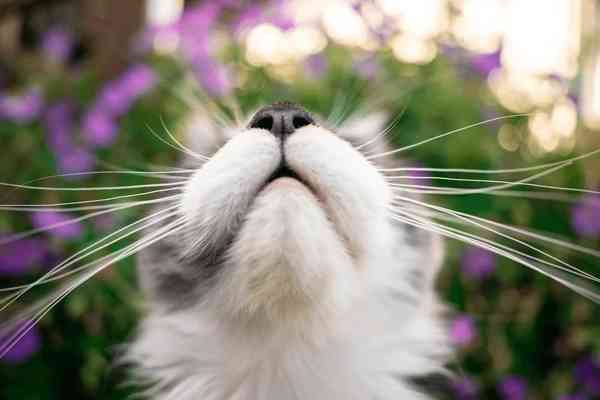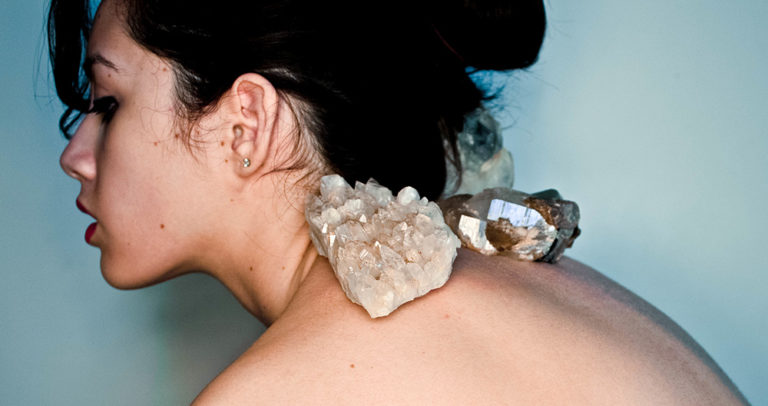Are Cat Whiskers Good Luck? Exploring Their Spiritual Meaning
Cat whiskers, the specialized hairs on a cat’s face, have long fascinated humans.
Unlike regular hairs, whiskers are connected to the nervous system, making them highly sensitive to touch and vibrations. This unique feature allows cats to navigate their surroundings with precision.
Beyond their biological function, whiskers are also associated with good luck and have cultural and spiritual significance. This article explores the mystical world of cat whiskers.
Whiskers as Symbols of Protection
In ancient Egyptian culture, cats were not just pets; they were revered as sacred beings. This reverence extended to their whiskers.
Egyptians believed that cat whiskers had the power to ward off evil spirits and bring good fortune to their households.
The goddess Bastet, often depicted with the head of a lioness or domestic cat, was the embodiment of home, fertility, and protection. Talismans featuring cat whiskers were common and believed to harness these protective qualities.
Whiskers and Otherworldly Connections
The mystical allure of cat whiskers transcended cultures. Celtic folklore, for instance, embraced the enigmatic nature of cats, viewing them as creatures with a strong connection to the spirit world.
The length and condition of a cat’s whiskers were thought to indicate its ability to navigate between the physical and spiritual realms.
A cat with long, healthy whiskers was seen as a being with heightened intuition, capable of guiding its human companions through life’s mysteries.
Popular Phrases That Mention Cat Whiskers
The cultural impact of cat whiskers is evident in several popular phrases:
The Cat’s Whiskers:
This expression, known as “the cat’s meow,” conveys something or someone as outstanding or excellent.
Originating in the early 20th century, it reflects the deep admiration people have for cats and their unique features, such as their agility, grace, and mysterious allure.
The phrase has become a beloved metaphor, symbolizing the awe-inspiring qualities that captivate and fascinate us, just like our feline friends.
By a Whisker:
This phrase, often used to describe a very close or narrow margin, draws on the thin, sensitive nature of cat whiskers to vividly emphasize the delicate and precise nature of a situation.
Just as cat whiskers delicately navigate their surroundings, the phrase highlights the meticulous attention to detail required in navigating the narrowness and intricacies of a particular circumstance.
Whisker Away:
Similar to the phrase “by a whisker,” this expression is frequently used to depict the exhilarating sensation of narrowly escaping or deftly avoiding a precarious situation.
It captures the essence of that heart-pounding moment when fate hangs in the balance, and one’s actions make all the difference.
What do Whiskers Symbolize?
Whiskers carry various symbolic meanings:
Increased Sensitivity:
Reflecting their remarkable biological function, whiskers are believed to symbolize a heightened sensitivity to energy and vibrations, acting as nature’s delicate antennas.
They serve as an exquisite sensory tool, not only in the physical realm but also in the ethereal and spiritual dimensions, attuning creatures to the subtlest energies that surround them.
Balance:
The role of whiskers in helping cats maintain balance is often regarded as a fascinating metaphor for the delicate equilibrium between the tangible realm of the physical and the intangible realm of the spiritual.
These highly sensitive sensory organs not only assist cats in navigating their surroundings with remarkable precision but also symbolize the profound interconnectedness of the seen and unseen worlds, serving as a reminder of the intricate harmony that exists between the material and ethereal dimensions of our existence.
Personal Growth:
Just as whiskers aid cats in exploring and adapting to new environments, they are thought to signify personal growth and exploration in humans.
Whiskers serve as sensory organs that provide valuable information about the surroundings, helping cats navigate and detect potential threats or opportunities.
Similarly, in humans, personal growth and exploration involve stepping out of comfort zones, embracing new experiences, and acquiring knowledge and skills.
This process allows individuals to expand their horizons, develop resilience, and adapt to the ever-changing world around them.
Protection and Purity:
White whiskers, with their ethereal appearance, are often regarded as a symbolic representation of protection, purity, and healing.
These delicate strands, gracefully adorning the faces of majestic creatures, carry a sense of wisdom and experience, earned through a lifetime of adventures and encounters.
Just as the moonlight illuminates the night sky, these shimmering wisps serve as a reminder of the resilience and inner strength that can be found amidst the passage of time.
Warding Off Negativity:
In certain cultures, it is believed that black whiskers possess the power to repel negativity and bring good fortune.
These mystical whiskers, often regarded as symbols of protection, are revered for their ability to ward off malevolent energies and create a harmonious environment.
From ancient folklore to modern practices, the significance of black whiskers continues to fascinate and intrigue, carrying with them a rich history of folklore and cultural beliefs.
Grounding and Balance:
Brown whiskers can signify grounding and balance, as they are often associated with a sense of stability and harmony.
These whiskers, with their warm hues, symbolize a connection to the earth and an ability to navigate life’s challenges with grace and poise.
They serve as a reminder to stay rooted in the present moment while embracing the ebb and flow of life’s experiences.
Neutrality and Persistence:
Whiskers that are grey or blue in color often symbolize neutrality and persistence.
These whiskers, with their muted hues, represent a sense of calmness and balance, while also embodying the tenacity and determination to overcome challenges.
They serve as a visual reminder of the unwavering commitment and resilience that one possesses, even in the face of adversity.
Bad Luck:
Conversely, a broken or lost whisker is sometimes seen as a sign of bad luck, given the cat’s dependence on them.
Whiskers are not only crucial for a cat’s balance and navigation, but they also serve as a sensory tool, allowing them to detect changes in their environment and sense nearby objects.
Therefore, when a whisker is damaged or goes missing, it can disrupt a cat’s ability to fully perceive and interact with the world around them, leading to potential missteps and unfortunate outcomes.
Conclusion
The belief in the good luck and protective powers of cat whiskers is steeped in ancient cultures and folklore. While there is no scientific evidence to support these beliefs, the cultural and symbolic significance of cat whiskers is undeniable.
They represent a fascinating intersection between the physical world and the realm of superstitions and symbolism.
Whether you believe in their mystical properties or not, cat whiskers undoubtedly add to the enigma and charm of our feline companions.
Frequently Asked Questions
What Does It Mean When You Find a Cat Whisker?
Finding a cat whisker can be a special experience. It’s quite rare, so it’s not surprising that some people attribute additional meaning to it, often feeling lucky. However, it’s important to remember that shedding whiskers is a normal part of a cat’s life cycle.
What If My Cat Is Losing Several Whiskers?
Sudden loss of multiple whiskers can be concerning. It’s advisable to consult a veterinarian to rule out any underlying health issues.
Why Do Cat Whiskers Fall Out?
Whiskers fall out due to natural causes, like aging, or health problems such as stress, physical injuries, or skin infections. It’s a part of their natural growth and shedding cycle.







